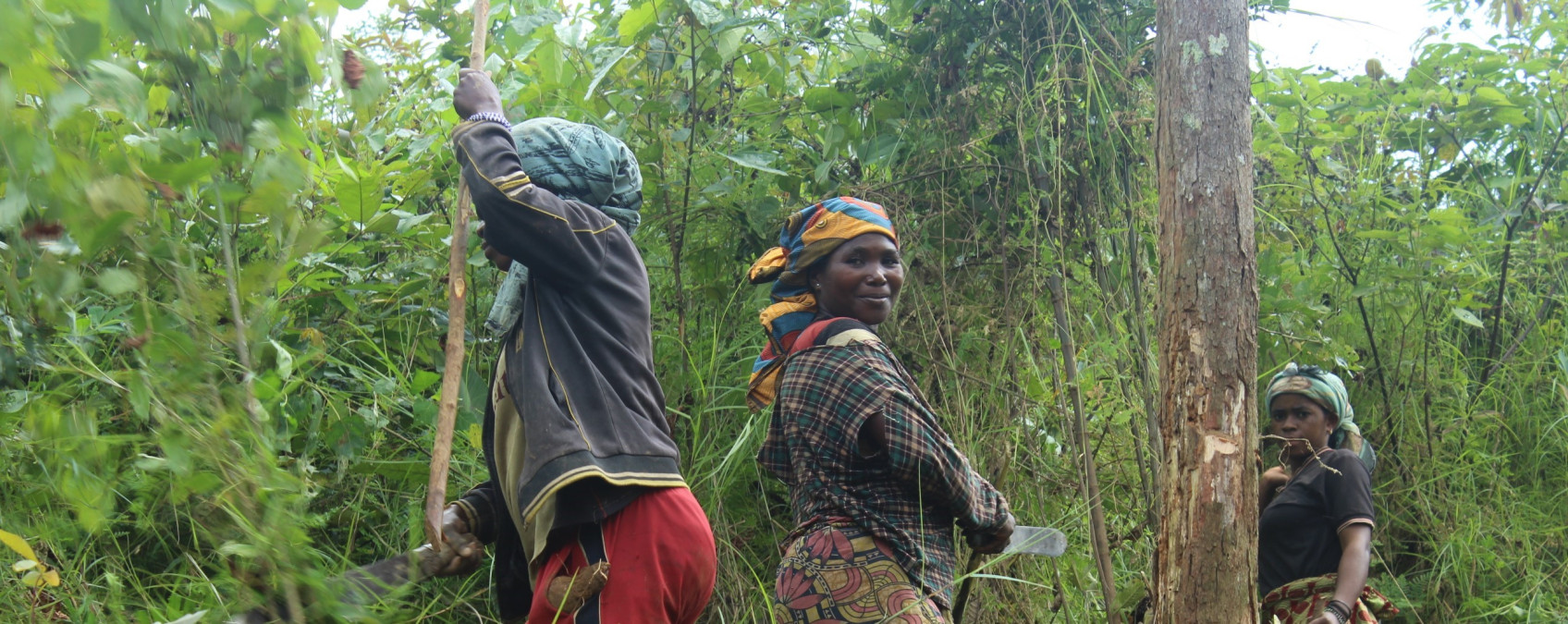A Community-Driven Approach to Fighting Malnutrition in DR Congo
Published: Dec 20, 2019 Reading time: 2 minutes Share: Share an articleAccess to food is a daily struggle for people in the Democratic Republic of the Congo. Today, as a result of armed conflicts, some 13 million people, including 5 million children, live in extreme food insecurity. Unfortunately, according to the World Food Program, the rates of food insecurity are only projected to increase.

In response, People in Need (PIN), with the support of DRC Humanitarian Fund administered by UN Office for the Coordination of Humanitarian Affairs in DR Congo, is stepping up its multi-sectoral activities in six areas within the Mulungu Health Zone. Over the next 12 months, the program will provide nutritional, health, and hygiene-related assistance to 15,000 beneficiaries; this includes an estimated 1,080 households that will benefit directly from activities designed to reduce food insecurity.
Mazambi Ntantine is among the beneficiaries. When fighting raged near her home in Kigulube, Mazambi, together with her husband and five children, abandoned their fields and property in search of safety. They eventually returned, but when they did, they’d lost everything. Our intervention has helped them to get a fresh start.
“After the return we were selected in the food security project organized by People in Need, where we received agricultural tools and seeds, and learned new farming techniques in a demonstration field,” says the 22-year-old mother. “This will help us to produce enough food for our five children.”
The precarious situation in the Mulungu Health Zone is well illustrated by many acute malnutrition cases referred to the local hospital, which is also supported by the project. "I am happy to participate in these activities and I am confident that the situation for my children will improve," says Mazambi.
According to PINְ’s Programme Manager Jean-Baptiste Babone, the best way reverses the region’s crippling food insecurity is to target interventions at families and communities. “The most successful nutrition programs, in Africa and elsewhere in the world, have been community-driven because they mobilize community resources towards a common goal: to rid the community of the scourge of hunger and malnutrition among vulnerable groups,” says Jean-Baptiste Babone.
People in Need started its activities in DR Congo ten years ago. Nowadays we combine malnutrition treatment programmes with prevention and focuses on interrelated issues like health, water and hygiene. Moreover, PIN supports agricultural and other activities contributing to quality and nutrient-dense food. PIN focuses on the most vulnerable population groups, particularly on internal refugees escaping local conflicts, as well as the host families that assist them.



